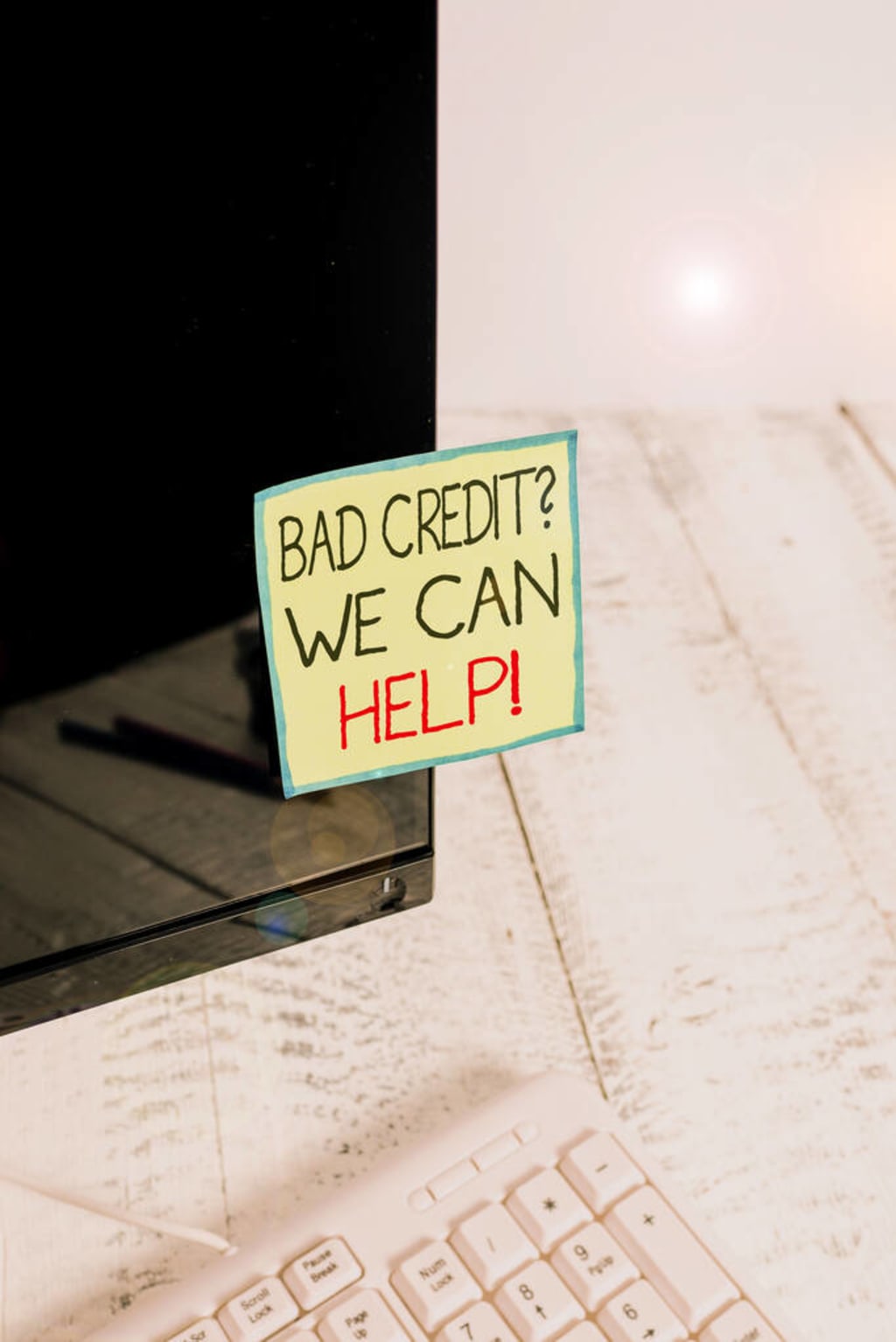What Is Equipment Financing And How It Can Help Businesses?
LeaseFunders.com

Whether you're starting a new business or have been in operation for many years, most small businesses require new equipment from time to time for a variety of reasons.
If you're starting a new construction company, you might need to put together your first fleet of heavy machinery. If you're a business owner, you might decide to start a non-emergency medical transportation company and need to purchase an ambulance. A successful restaurateur may decide to renovate their kitchen or open a new location. To better serve its customers, a growing painting company may decide to purchase an additional utility van.
Whatever the case, these expenses, especially when unplanned, can be prohibitively expensive.
One of the most significant reasons is that 60% of small businesses experience cash flow issues each year.
When a business needs to buy new equipment, upgrade existing machinery, or replace old equipment, it can be difficult to find the funds.
After all, small business owners must pay operating expenses every month and must have cash on hand to pursue new opportunities. As a result, many small business owners in need of equipment and machinery seek financing from outside sources.
Continue reading to learn everything you need to know about business equipment loans.
What Exactly Is An Equipment Loan?
An equipment loan is a common financing option for businesses that require new equipment or vehicles but do not have the financial resources to pay cash. In most cases, the immediate returns from the newly purchased equipment can be used to cover the loan's monthly payments. In comparison to secured loans from traditional banks, which require business owners to pledge their assets as collateral, equipment loans are a more strategic financial decision.
Is your company in need of an equipment loan?
A loan for equipment is a significant financial decision. Most business owners decide to take out an equipment loan to replace old machinery, upgrade existing machinery, or add to their existing fleet.
A variety of factors contribute to the decision of business owners to replace the equipment they are currently using. The most common factors are deterioration and obsolescence, which frequently result in hazardous working conditions, capacity constraints, and decreased profitability.
1. Deterioration - After a long period of use, the performance of the equipment may begin to deteriorate. Deterioration can be managed through regularly scheduled maintenance, but all equipment eventually shows signs of wear and tear.
2. Obsolescence - Due to the rapid pace of technological advancements, some equipment becomes obsolete sooner than expected. Keeping up with the rapid advancement of technology can be extremely difficult for some businesses, particularly small ones.
3. Workplace hazards - As equipment deteriorates or becomes obsolete, it may cease to function properly, posing hazards to workers.
4. Reduced profitability - Old equipment may eventually perform inconsistently or simply be incapable of keeping up with newer models, resulting in defective products and an inability to meet production demand.
What Should You Look for in an Equipment Financing?
When looking for any type of small business financing vehicle, including equipment loans, there are several factors to consider:
1. The lender's area of expertise. As previously stated, some lenders will only fund businesses in a specific industry (e.g., construction, restaurants, and so on). If you own a restaurant, you should probably avoid applying for a loan from a lender that specializes in manufacturing equipment loans.
2. The loan's size. While some equipment loan providers will finance up to $2 million in purchases, others may only be willing to lend you $100,000. The size of the loan and the type of equipment required can influence which provider you should use.
3. Qualifications are required. Each lender has a unique set of requirements that they look for in borrowers. Some equipment loan providers, for example, may require borrowers to have credit scores of 600 or higher. Others may be willing to lend to borrowers with at least a 500 credit score. Lenders may also consider how long your company has been in operation to determine whether you qualify for an equipment loan. Some lenders will finance companies that have been in operation for six months, while others will require borrowers to have been in operation for at least two years. Finally, lenders may assess your creditworthiness based on your annual revenue. Some more flexible lenders may only require you to generate $25,000 per year, whereas others may look to fund businesses that generate $150,000 or more per year.
4. Rates of interest. Fixed interest rates on equipment loans typically range from 8% to 30%. Just remember to do your homework to avoid signing up for a loan that will end up costing you a fortune in the long run.
5. Funding speed. Many equipment loan financiers can fund small businesses in a matter of days, if not hours. Other lenders, especially those affiliated with the Small Business Administration (SBA), may take several weeks.
6. Loan conditions. How long do you intend to keep the equipment loan? Some lenders may provide 10-year loans, while others may provide loans that are expected to be repaid within a year. Look for terms that make sense in the context of your company.
It's time to start the application process after determining which equipment loan criteria are most important to consider for your business and deciding whether an equipment loan is a right choice for you.
What are the Prerequisites for Obtaining Equipment Financing?
Not every business will be eligible for equipment financing. However, programs are available for the majority of situations. If you've only been in business for one day, or if you've had a bankruptcy within the last year, you may still be able to qualify for equipment financing. In situations like this, you may require a deposit or collateral.
If you're still concerned about your ability to qualify for the equipment loans you require, you can improve your appeal to lenders by making the following changes:
1. Look for a cosigner.
If a cosigner with better credit agrees to cosign on your loan, lenders may be more willing to offer you equipment financing at a better rate.
2. Other assets can be used as collateral.
Do you have any additional equipment or real estate that you could use as collateral? Typically, the equipment required for the loan is used as collateral in the event of a default, but if you have poor credit, offering more collateral may be the boost you need to get the funds you require.
3. Make a substantial down payment.
If you have enough cash on hand to cover a significant portion of the total equipment cost, you'll have a much better chance with prospective lenders as a candidate with bad credit.
4. Demonstrate your business acumen.
Of course, it's easier said than done, but it's worth attempting to demonstrate to the lender that your business has recently been thriving. Can you provide several months of bank statements to demonstrate rapidly increasing revenue? Lenders may be more forgiving of a poor credit score if there is evidence that the business is thriving.
How Do You Determine If You Are Eligible for Equipment Financing?
Of course, there is no tried-and-true formula for qualification, but a good indicator of whether you'll be eligible for some kind of equipment financing is:
- You've been in business for at least 11 months.
- You should have at least a 600 credit score is a must.
- Annual revenue of $100,000+
Even if you don't fall into one of these categories, especially the last one, most businesses can still qualify for funding. Because of the collateralization aspect, you can probably still find equipment financing with a bad credit rating. However, how much your company qualifies for and the interest rate you'll pay on that loan is determined by the value of the equipment, your company's financial history, and your credit score. In fact, equipment financing companies consider what is securing the loan just as much as your company's creditworthiness.
Tips on How To Get Equipment Financing with Bad Credit
Obtaining equipment financing for bad credit is not impossible. However, just as with any other type of financing, if you have bad credit, you may need to adjust your expectations and put in some extra effort to get approved.
Consider researching lenders before you need loan funds, and allow yourself enough time to carefully prepare your equipment financing application. These eight suggestions can help you maximize your chances of growing your business with the right equipment.
1. Begin with Existing Banking Relationships
Established businesses may begin their search for equipment financing with a bank or lender with whom they already have a relationship. Even if they are looking for poor credit equipment financing, potential borrowers may begin their search at an institution with which they already have a relationship. Depending on the financial institution, there may be programs that provide existing customers with rate discounts or other benefits. This may not help businesses looking for startup equipment financing with bad credit (there are other startup loan alternatives to consider), but it can be a starting point for those who already have a track record.
2. Consider Leasing Equipment
Another option for getting the equipment you need for your business is to lease it rather than purchase it outright with a business loan. While an equipment loan may require a significant down payment, a lease may allow you to finance the entire cost. You may also be able to include some soft costs, such as delivery fees or taxes, in that figure.
When leasing equipment, keep in mind the interest rate and other requirements. Some leases may call for a maintenance package or a high-interest rate. Because of these fees and additional costs, leasing equipment can sometimes be more expensive than purchasing it.
3. Providing Additional Support
Consider offering additional collateral when applying for equipment financing with bad credit. Lenders may require a 20% down payment. In most cases, the down payment, along with the value of the equipment, is sufficient collateral to satisfy the lender. However, equipment financing for people with bad credit may have more stringent requirements. Some lenders may accept additional collateral, such as real estate, to help secure the loan.
4. Increasing Your Deposit
Making a larger down payment is another way to make your application for a small business loan more appealing to lenders. This strategy may only work for companies with large cash reserves. However, it may be a workaround for obtaining equipment financing with bad credit. Furthermore, a higher down payment results in a lower loan balance. This could result in a lower monthly payment and less interest paid over the loan's life. Examine the loan terms, fees, and interest rates carefully to see how a larger down payment might affect the overall cost of your loan. While not every business will be able to pull this off, those who can benefit.
5. Making Changes to Your Business Plan
Depending on the lender, you may be required to submit a business plan with your application. A solid business plan can highlight your business acumen and assist you in demonstrating how the equipment purchase will help the company grow.
A business plan includes several components, such as a company overview and structure, market analysis, operations, and financial projections. Provide detailed data to demonstrate to the lender that your product or service has a market need and that you are successfully managing both operations and business cash flow. If you're applying to a traditional bank or lender, you could also include a section outlining your funding request.
Obtaining Financing for Equipment
Lease Funders makes it simple to find the best business equipment financing deal for your company. Save time and effort by searching for lenders who want to work with you manually. Instead, you can submit a single application to Lease Funders to receive the assistance you require to grow your business.
About the Creator
Samantha Moon
If you're looking for help getting your business off the ground, or if you just want to take it to the next level, contact us today!






Comments
There are no comments for this story
Be the first to respond and start the conversation.